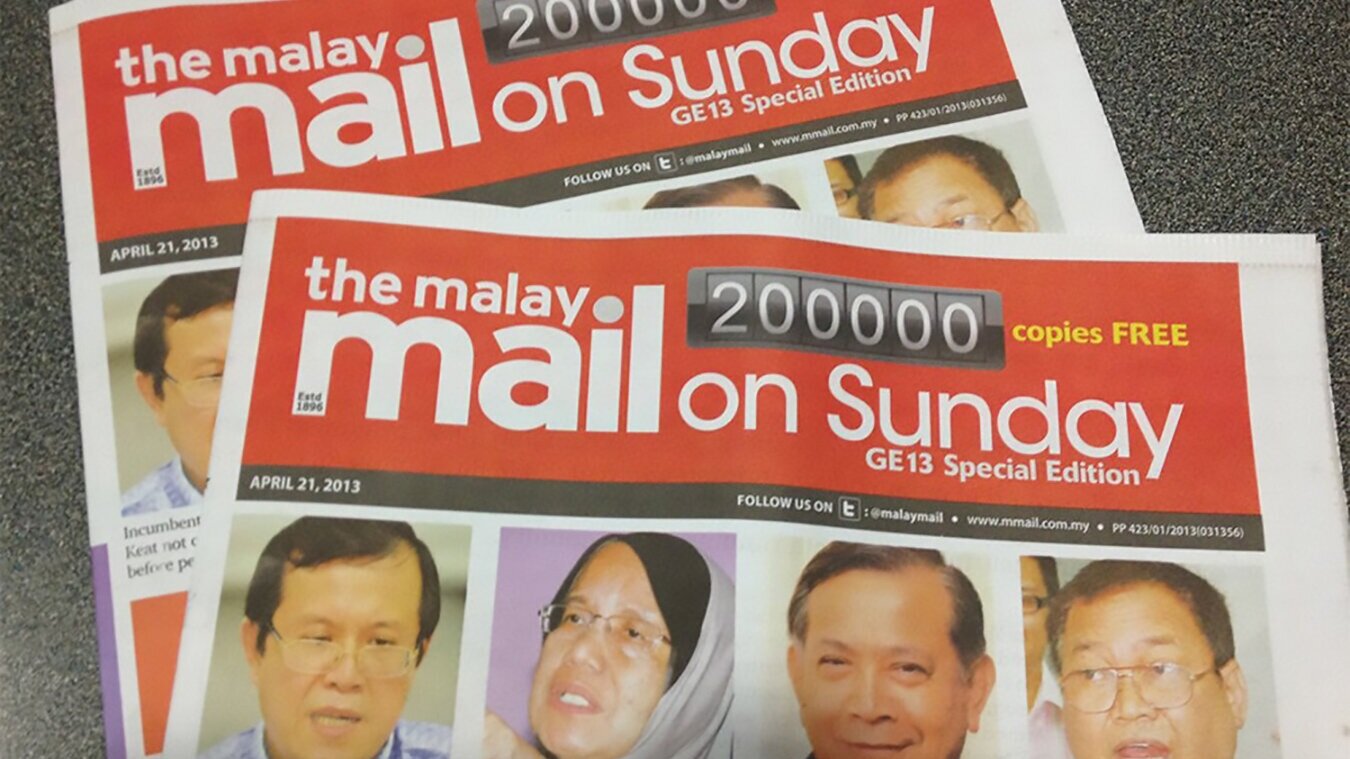After more than a century, Malaysia’s oldest tabloid The Malay Mail ceases print operations.
Malaysia’s oldest tabloid The Malay Mail turned off the presses for the last time after being in print for 122 years.
In a world before the internet, the English-language newspaper was popularly sought for its English football scores, but also covered local news and community issues across the country.
Known by its tagline ‘The Paper That Cares’, the afternoon paper once thrived on classified advertisements. But like many of its counterparts, the Malay Mail has been hit by dramatic declines in circulation and ad revenue.
Without revealing exact figures, editor-in-chief Wong Sai Wan describes its current figures as “a pale shadow of the print numbers of 100,000 in the 1980s.” Today, the newspaper’s typical print run is about 20,000.
“I am heartbroken but I am striving on to keep the Malay Mail’s legacy alive digitally,” says the veteran newspaperman.
Wong says the online version racks up more than five million unique page views per month. According to management, this statistic partly justified the need to go digital.
In a recent meeting, Wong told the publication’s 165 employees that “the old way of doing the newspaper business of advertising subsidising the circulation, editorial and printing costs is no longer viable.”
During that session, he also said that 80% of the online traffic came via mobile.
The brand’s social media reach is also strong, with more than 300,000 followers on Facebook and Instagram.
One-third of all staff reportedly could be affected by the move, with the company giving them the option to leave or retrain to take on new roles.
Malaysia’s oldest tabloid newspaper @malaymail ends its print operations and embraces a digital future.
A long and storied history
The Malay Mail was first published on December 14, 1896, making it the first tabloid in the then-Federated Malay States. Records from the National Library Board of Singapore show that former civil servant JHM Robson started it as a four-page newspaper.
During World War Two, when Malaya was under Japanese occupation, the Mail was briefly replaced by Malai Sinpo, under the direction of Syonan Sinbun-kai. It resumed operations after the war.
Fast forward to the mid-2000s, and the newspaper began to see its circulation shrink. From a high of nearly RM100 million ($24 million) in revenue during its best-performing days, it struggled with losses in later decades.
Management have toyed with various models over the years, offering free copies in 2008 and then reverting back to sales. They also started an e-paper version of the publication and shared content with Malaysiakini as a way to diversify content.
In 2013, the Malay Mail Online was established. Managing editor Leslie Lau says the owners recognized the need to build a strong online presence for a brand that, while established a long time ago, had “slipped from the consciousness of modern Malaysia.”
“Many other newspapers [have] also suffered the same fate but still do not realize or are unable to accept it,” he adds.
Transforming the business model
Wong has said in the past that he was not keen on simply cutting costs, but on finding a new business model to fund their operations. The Malay Mail costs RM2.70 (65 cents) to print but sells at a loss of RM1 (24 cents) per edition.
With the expense of content production and newsgathering weighing on the company, Lau says, management was moving to diversify its business portfolio.
“We will not be limited by content creation alone but will look at all options that will tie up with our strategy of building a high value digital media group,” Lau says.
“It’s a tough and competitive market in Malaysia, but am confident about the Malay Mail’s future, having grown to be among the top five news websites in the country.”
However, he feels that the brand is mostly popular older audiences. And getting younger readers hooked on its content remains a challenge.
“But we believe that with the right strategy and astute acquisitions we can be, and should be, a major force,” Lau says.

